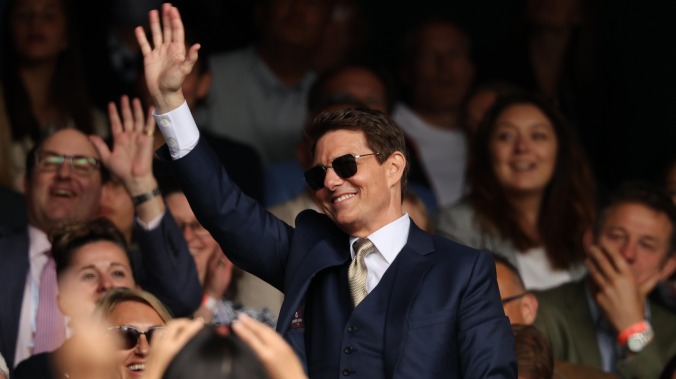Got him: Tom Cruise once said a Top Gun sequel would be "irresponsible"
"That’s why I didn’t go on and make Top Gun II and III and IV and V. That would have been irresponsible."

1986's Top Gun is many things: a homoerotic romance, a beautiful display of Tom Cruise’s early talents, and an unrepentant bit of pro-military propaganda. But, hey, don’t get mad about us about that. It’s Tom Cruise’s opinion. Or, at least, it was in 1990.
Following a mid-career crisis that saw Cruise jumping on couches, railing against mental health medications, and becoming the poster boy for L. Ron Hubbard’s Scientology, Cruise focused on action movies where he did his own stunts. After realizing that sequels were the only version of Cruise that people were interested in, he jumped back into the cockpit for Top Gun Maverick, which was “irresponsible” according to a younger, smarter Cruise.
In this 1990 interview with Playboy (via Gizmodo), Cruise explains that “some people felt Top Gun was a right-wing film to promote the Navy,” and a lot of kids loved it. Kids famously love war.
Playboy: [Born On The Fourth of July] is also the flip side of Top Gun, which is essentially war by Nintendo game and a paean to blind patriotism.
Cruise: OK, some people felt that Top Gun was a right-wing film to promote the Navy. And a lot of kids loved it. But I want the kids to know that that’s not the way war is—that Top Gun was just an amusement park ride, a fun film with a PG-13 rating that was not supposed to be reality.
That’s why I didn’t go on and make Top Gun II and III and IV and V. That would have been irresponsible.
It was a rare moment of candidness from Cruise, who doesn’t really give these kinds of interviews anymore. Instead, he mainly saves his personal opinions for the set—unless it’s about motion smoothing. Last year, Cruise became the Internet’s BFF after chastising a crew member for not wearing a mask or social distancing on set. The Hollywood Reporter reports that both Tom Cruise and director Christopher McQuarrie are “believed to be unvaccinated,” which supports his argument for masking and social distancing.
 Keep scrolling for more great stories.
Keep scrolling for more great stories.
